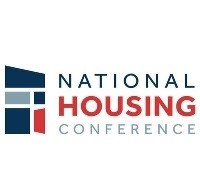New Democrat Coalition and Congressional Hispanic Caucus Request Answers from Navy Federal Credit Union, Government Regulators on Alleged Discriminatory Lending Practices
WASHINGTON, D.C. – RealEstateRama – New Democrat Coalition Affordable Housing Task Force Chair Norma J. Torres (CA-35), Vice Chair Emilia Sykes (OH-13) and Congressional Hispanic Caucus Chair Nanette Barragán (CA-44) led 21 Members in letters to investigate recent reports that Navy Federal Credit Union (NFCU) engaged in racially discriminatory lending practices. A recent analysis found statistically significant disparities in both conventional and VA loans for both Black and Latino mortgage applicants when compared to similarly situated white mortgage applicants.
The letters request more information on the policies and procedures of NFCU, the first being addressed to NFCU CEO Mary McDuffie and the second calling on relevant government regulators to investigate the matter.
“As champions of economic opportunity, New Dems take these allegations seriously. Every American deserves access to affordable housing, and lenders like Navy Federal Credit Union must be part of the solution, not the problem,” said Affordable Housing Task Force Chair Norma J. Torres and Vice Chair Emilia Sykes. “We look forward to reviewing the responses from Navy Federal Credit Union and government regulators, and will work with Congress and the Administration to ensure equality and fairness is upheld.”
“The Congressional Hispanic Caucus is concerned about the report of possible discriminatory practices by the Navy Federal Credit Union. Prospective Black and Latino homeowners face significant hurdles as they look to buy a home and they must have equal and fair access to home mortgage loans,” said CHC Chair Nanette Barragán. “Homeownership is one of the best ways for Black and Latino communities to build generational wealth and create long-term vibrant, diverse communities. The Latino population continues to grow rapidly across the country and there are millions of mortgage-ready Latinos ready to own their first home. It is critical to the economic health of all our communities that prospective Black and Latino homeowners have access to the same home mortgage loans as other Americans. A prompt and comprehensive response is necessary from all parties so that we can work to make homeownership truly accessible.”
The letter to NFCU CEO Mary McDuffie reads in part:
“As Members of the New Democrat Coalition and Congressional Hispanic Caucus, we are committed to ensuring all borrowers have access to opportunity as a basic moral and legal principle of fairness… We urge you to ensure any harmed consumers are made whole, consider whether a Special Purpose Credit Program is appropriate, and improve the credit union’s Compliance Management System, as appropriate.
You can read the full letter to government regulators here, and the full letter to Ms. McDuffie here and below:
Ms. McDuffie,
As Members of the New Democrat Coalition and Congressional Hispanic Caucus, we are committed to ensuring all borrowers have access to opportunity as a basic moral and legal principle of fairness. We are writing regarding a recent CNN report raising concerns that Navy Federal Credit Union has the widest disparity in mortgage approval rates of any of the nation’s top lenders. We urge you to ensure any harmed consumers are made whole, consider whether a Special Purpose Credit Program is appropriate, and improve the credit union’s Compliance Management System, as appropriate. We also would like to invite you to meet in-person with the signatories of this letter to discuss these issues further.
According to its corporate fact sheet, Navy Federal Credit Union (Navy FCU) is a military-focused, nonprofit financial institution with over $168 billion in assets and 354 branches worldwide. Navy FCU states that “Our Members Are The Mission?” and membership consists of over 13 million current and former members of the Navy, Army, Marine Corps, Air Force, Space Force, Coast Guard, and Department of Defense (DoD) and their families. Navy FCU is the largest credit union in the United States.
The CNN analysis raises concerns that Navy FCU has discriminated against current and former members of the military and DoD on the basis of race and national origin, which is prohibited by the Equal Credit Opportunity Act and the Fair Housing Act. Based on Home Mortgage Disclosure Act data from 2022 and prior years, CNN’s analysis showed that Navy FCU had large, statistically significant underwriting disparities in home purchase mortgage applications, even after controlling for legitimate underwriting factors, such as debt-to-income ratio and loan-to-value ratio. The analysis found unexplained, statistically significant disparities in both conventional and VA loans and for both Black and Latino mortgage applicants when compared to similarly-situated White mortgage applicants. In the CNN report, a Navy FCU spokesperson stated that CNN’s analysis did not account for major underwriting criteria, such as credit score, available cash deposits, and relationship history with the lender. However, the data showed that less than a quarter of the Black applicants were denied for “credit history.” While CNN’s analysis does not prove that Navy FCU discriminated on the basis of race and national origin, it raises significant questions, especially in light of Navy FCU’s history of disparities and complaints.
There are a variety of statutes and authorities implicated by this situation. For example, mortgage lending discrimination is prohibited by the Equal Credit Opportunity Act and the Fair Housing Act. Regulators have long provided guidance to lenders regarding how to identify and prevent lending discrimination (see 1994 Policy Statement on Discrimination in Lending, 2009 Interagency Fair Lending Examination Procedures). As explained in these documents, caselaw, and U.S. Department of Justice (DOJ) fair lending settlements, discrimination can be proven under the theory of disparate treatment or disparate impact. Given the large, statistically significant disparities, the lender would need to show a legitimate non-discriminatory reason that explains the disparity (disparate treatment defense) or a significant, legitimate interest for its policies with no less discriminatory alternative (disparate impact defense). Given the size of Navy FCU, the Consumer Financial Protection Bureau (CFPB) has supervisory obligations to ensure the credit union’s compliance with Federal consumer financial protection laws, including fair lending laws, such as the Equal Credit Opportunity Act (ECOA). The National Credit Union Administration (NCUA) also has supervisory responsibilities with respect to the credit union. Agencies may also make referrals to the DOJ if they have reason to believe the credit union may have engaged in a pattern or practice of discrimination in violation of ECOA. The Fair Housing Act also assigns responsibilities to HUD and the DOJ regarding discrimination complaints and cases. FHFA is also assigned authority over conventional loans, and the VA over VA loans, that are implicated in Navy FCU’s lending practices. In addition, under the Fair Housing Act (42 U.S.C. § 3608(d)), the federal financial regulators have a duty to “affirmatively further fair housing,” which means they must take meaningful actions that overcome patterns of segregation and foster inclusive communities free from barriers that restrict access to opportunity based on protected characteristics.
To help us as policymakers better understand the policies and procedures in place at Navy FCU, we ask for your response to the following questions:
- As indicated in CNN’s HMDA analysis, Navy FCU’s disparities in mortgage approval rates have continued to widen since 2018. Have there been any changes in policy or procedures, such as those related to underwriting that may explain this? Would those changes have any impact on approval decisions?
- What are Navy FCU’s internal policies and practices for routinely assessing annual HMDA data in conjunction with other internal data to assess for potential fair lending risks? How does Navy FCU define routinely?
- Does Navy FCU contract with any third-party experts to test for potential fair housing and fair lending concerns across its financial counseling and mortgage loan application, underwriting, and approval processes?
- What, if any, is Navy FCU’s legitimate, non-discriminatory reason to explain the disparities in conventional and VA loans for Black and Latino mortgage applicants as identified in CNN’s investigation?
- What is Navy FCU’s legitimate business need for its current mortgage application, underwriting and approval procedures for conventional and VA loans? How has Navy FCU ensured that these policies and procedures, including any use of artificial intelligence, are non-discriminatory and adhere to federal fair housing and fair lending laws while still achieving Navy FCU’s business needs?
- With respect to Compliance Management Systems to prevent underwriting discrimination:
- Board and management: How does Navy FCU train the board and management on the risks of underwriting discrimination? How do they address any violations of law or weaknesses in Compliance Management Systems? For example, what are the procedures for internally reporting potential discrimination or fair lending risks?
- Policies and procedures: What kind of policies and procedures does Navy FCU use to control the risks of lending discrimination in conventional and VA loans, including in the underwriting process? How long have these policies been in place? How is the effectiveness of these policies evaluated? What are the procedures for internally reporting potential discrimination or fair lending risks?
- Training: How often does Navy FCU provide fair housing and fair lending training to the board, management, and employees? How was the training developed? Are fair lending experts involved in the development of training and if so, who are those experts? How is the effectiveness of these trainings routinely evaluated?
- Monitoring and audit: How does Navy FCU use monitoring and auditing to control the risk of underwriting discrimination? How often does Navy FCU conduct statistical analysis of underwriting results for conventional and VA loans on the basis of race and national origins, including for exceptions to any underwriting criteria? How does Navy FCU respond to any violations of law or weaknesses discovered through the monitoring or audit process?
- Complaint system: How does Navy FCU track complaints of discrimination? What are Navy FCU’s procedures for processing and closing such complaints? To what extent does Navy FCU escalate any complaints of discrimination? How does Navy FCU use the complaint system to ensure that harmed consumers are made whole? What are the trends related to complaints of discrimination in the past ten years? Have they increased, decreased, or remained the same?
- Please provide the numbers and percentages of Black and Latino employees in the following job categories for 2018-2023: Total workforce; First/Mid-Level Officials and Managers; Executive/Senior Level Officials and Managers.
- Does Navy FCU offer any Special Purpose Credit Program for the benefit of its members or a subset of its members? If so, what are they, and if not, why not?
- If Navy FCU discovers evidence of discrimination against its members, what is its policy and procedure to determine the root cause, severity, duration, and pervasiveness of the finding? What steps does it take to identify, notify, and remediate harmed consumers? What steps does it take to notify relevant Federal agencies?
Thank you for your attention to this matter. We expect you and government regulators to ensure people have access to equal opportunity. We look forward to your continued engagement on this and other issues.















